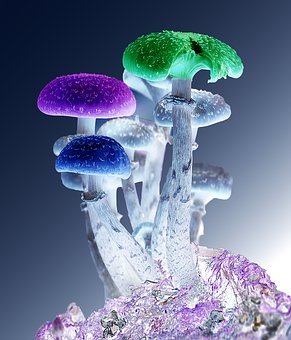For a long time, psychedelic chemicals disappeared from the medical radar. Now, with an unprecedented loosening of the laws preventing them from being researched, they are re-assuming their roles in mainstream science, and promising breakthroughs in notable areas, none less so than in the field of PTSD therapy.
Trials in America and reported in Scientific American that concluded in 2017 found that 54% of the 72 people who were given MDMA improved to the point where they no longer fit the diagnosis.
Therapeutic applications of MDMA
MDMA (ecstasy) was legal until 1977 in the UK and 1985 in the US. Since then, it has been difficult for scientists to study its effects, as well as for members of the public to access it. However, following an approval by the American Food and Drug Administration (FDA), fresh research has begun into the substance’s potential therapeutic applications.
MDMA, a chemical similar to amphetamine, had a history of use as an aid to psychotherapy before it was banned. Now, scientists are able to pick up where they left off all those years ago. (https://maps.org/research-archive/mdma/mapsmdma.html)
Another trial, in 2018, found that, of 26 PTSD patients treated with MDMA alongside psychotherapy, 86% of those given 125mg of the drug and 58% of those given 125mg no longer met the diagnostic criteria for PTSD. Following the study, 16 of the 26 were no longer classified as suffering from PTSD.
Psychotherapeutic research
Another drug reported in Nature that shows psychotherapeutic potential is psilocybin. A 2017 trial at Imperial College, London, found that of 19 patients with depression treated with the drug, all 19 showed a decrease in depression symptoms a week after treatment.
 The Imperial study also sought to understand the mechanism by which psilocybin acts on the brain, since it too is gathering momentum as a support to psychotherapy. Anecdotal evidence also reports beneficial effects on PTSD patients.
The Imperial study also sought to understand the mechanism by which psilocybin acts on the brain, since it too is gathering momentum as a support to psychotherapy. Anecdotal evidence also reports beneficial effects on PTSD patients.
Doctors in Australia have also been researching the potential use of psilocybin as a treatment for the dying. Doctors at St Vincent’s Hospital, Melbourne, have been administering psilocybin to patients in palliative care as part of Australia’s first trial of psychedelic drugs for treating severe depression in the terminally ill. The Guardian has reported that use of psilocybin as a treatment for both depression and PTSD is expected to open up in Australia over the next few years.
Psilocybin is the active ingredient in so-called ‘magic’ mushrooms and, unlike MDMA, which was first synthesised in 1912, has a long history of use in traditional medicine. The mushrooms began to be eaten by westerners in the 1950s and psilocybin was briefly the focus of early psychedelic research in the 1960s, alongside LSD. (https://science.howstuffworks.com/magic-mushroom6.htm)
Maligned chemicals?
These controversial substances were once beyond the pale for legitimate research. The experiences of war veterans in the decades following the Iraq and Afghanistan wars have contributed to an opening-up of attitudes towards the maligned chemicals.
Now that laws are being relaxed, study after study is shining a light on the potential benefits of psychedelics in a therapeutic setting. Now that the floodgates have opened, it is unlikely that they will ever again be closed. Psychedelics are back to stay.

